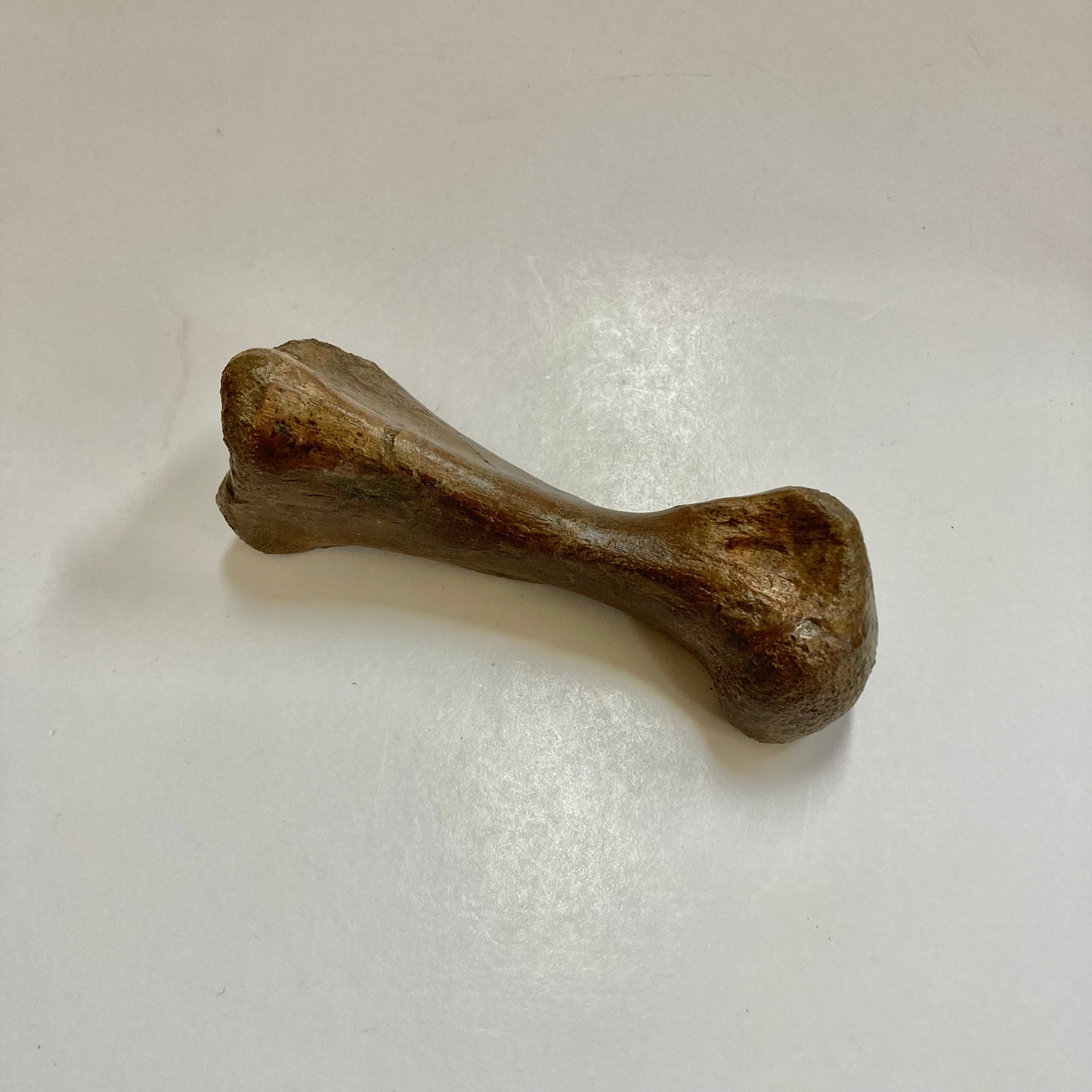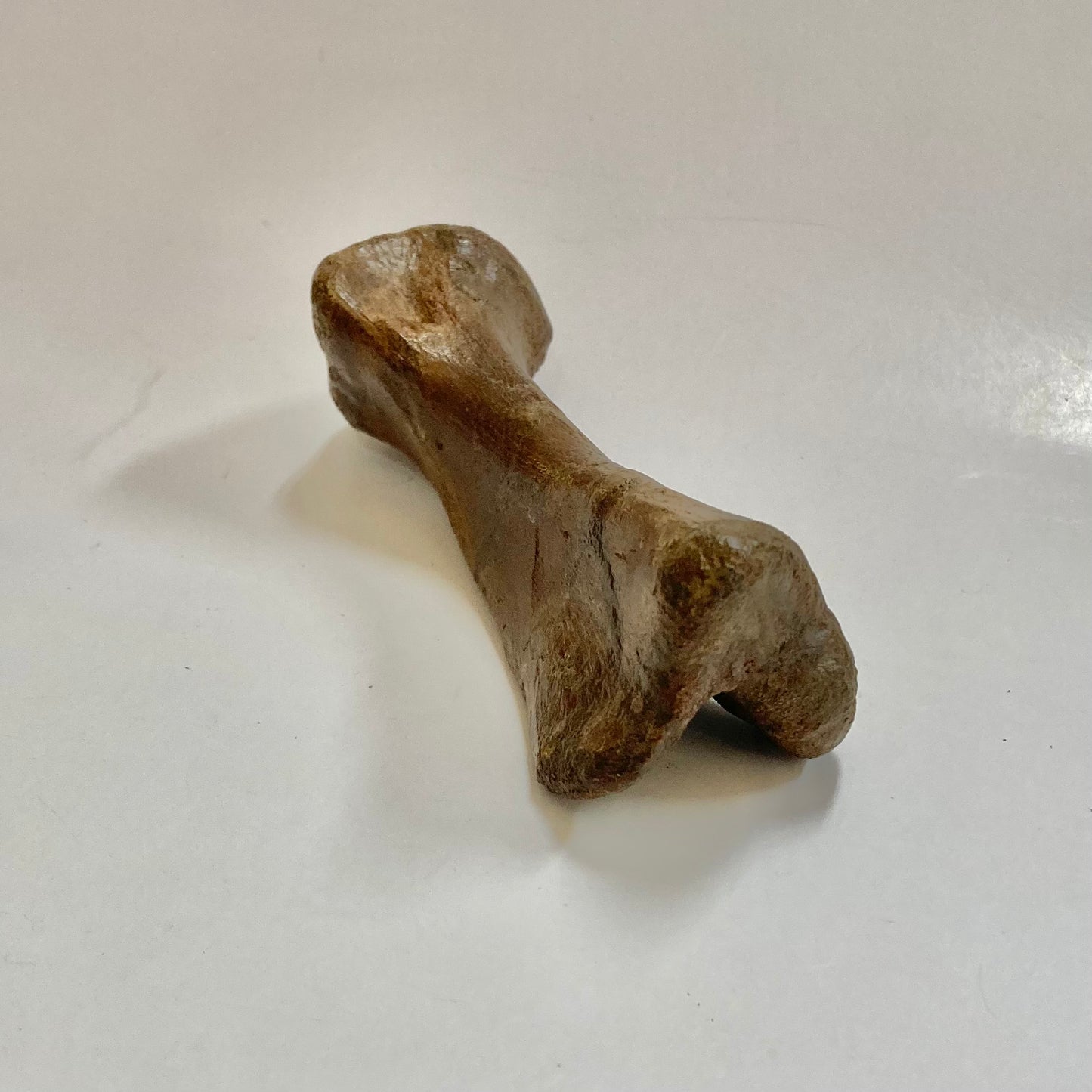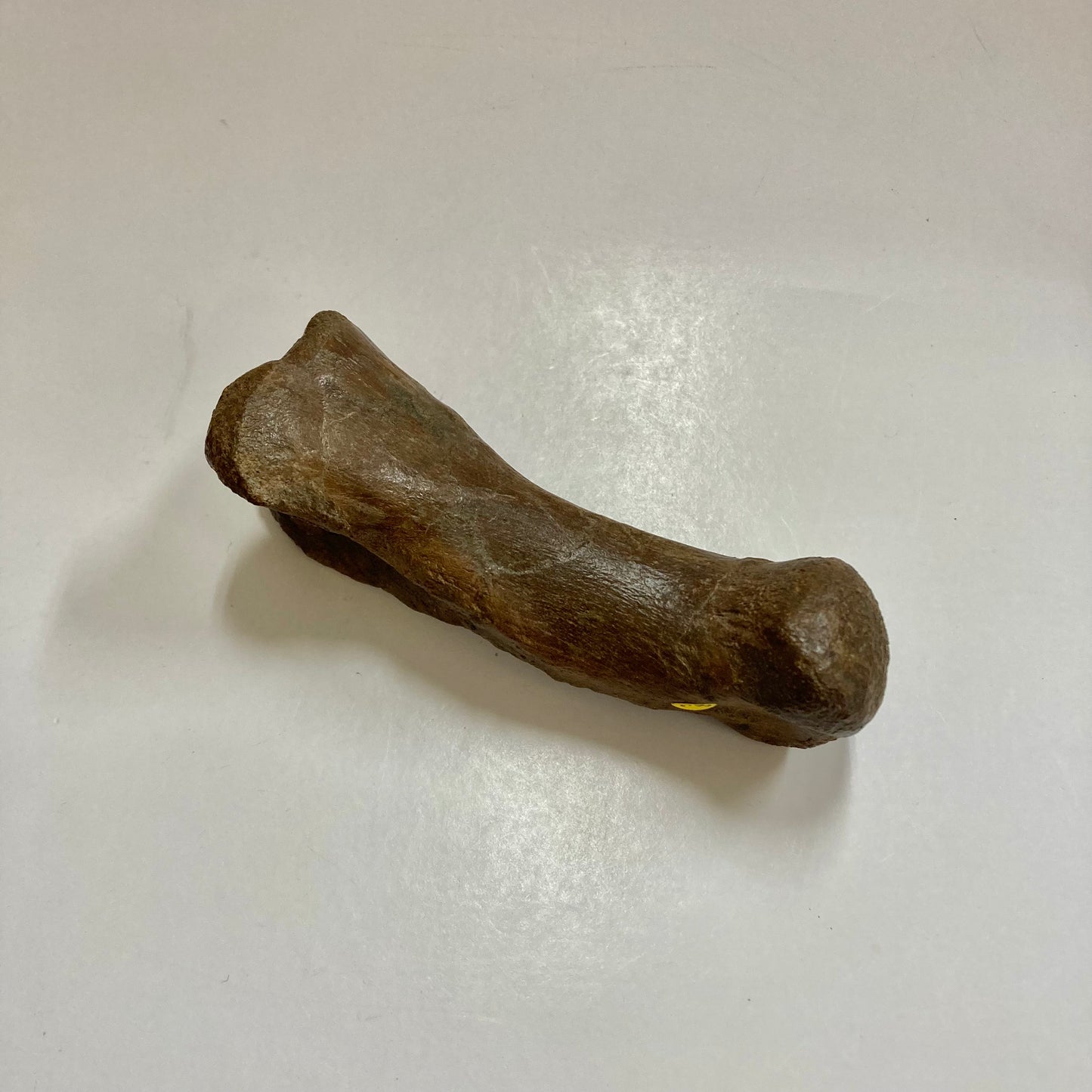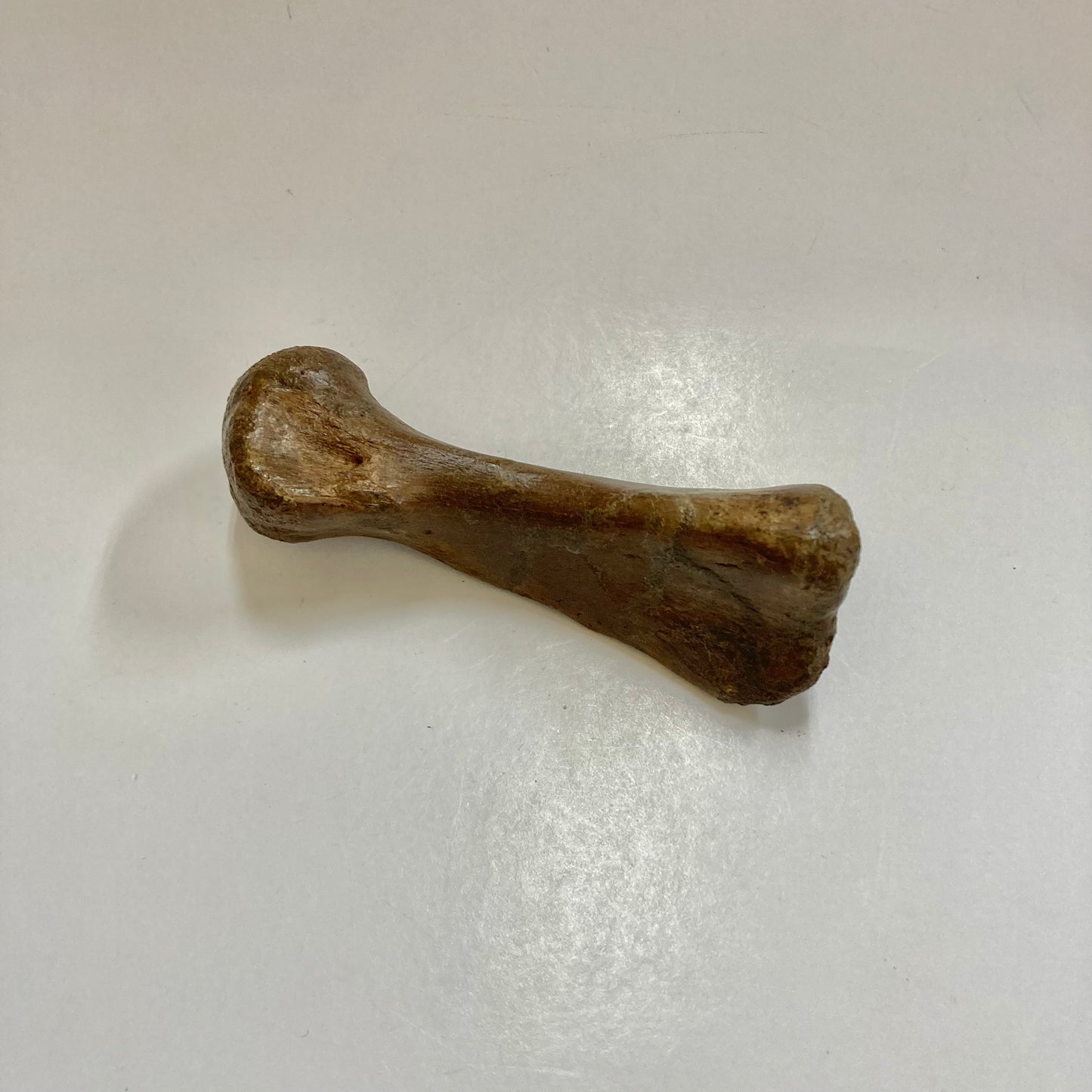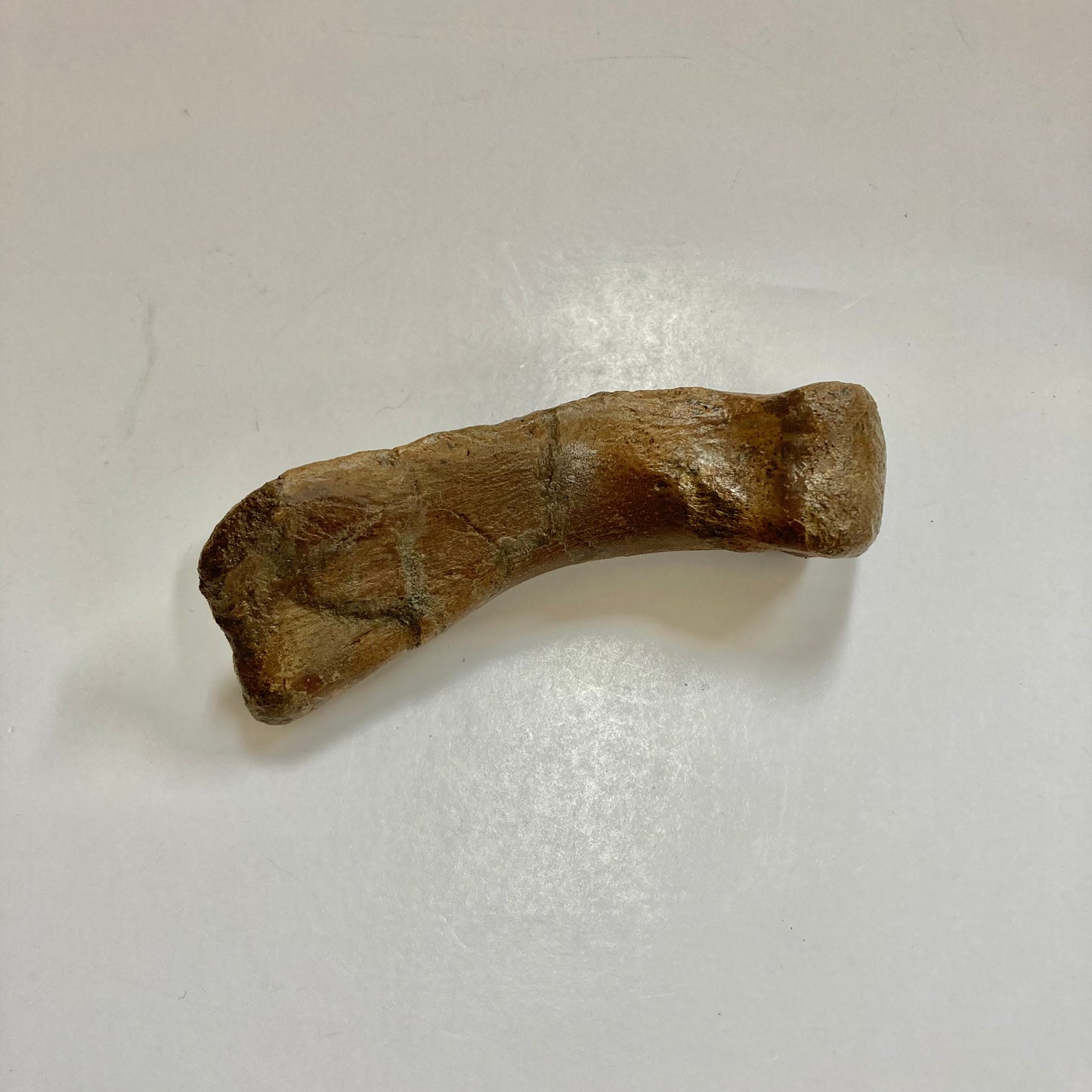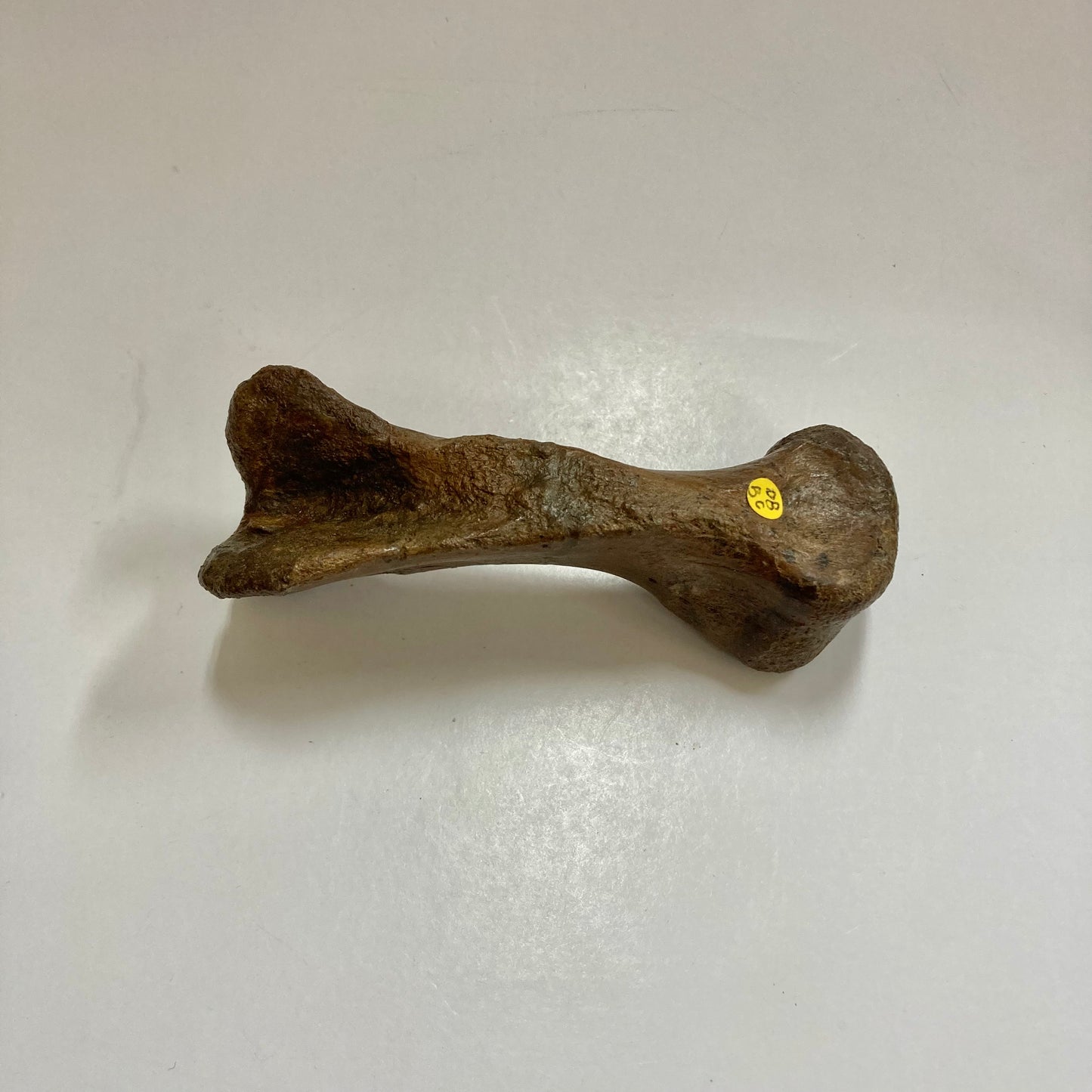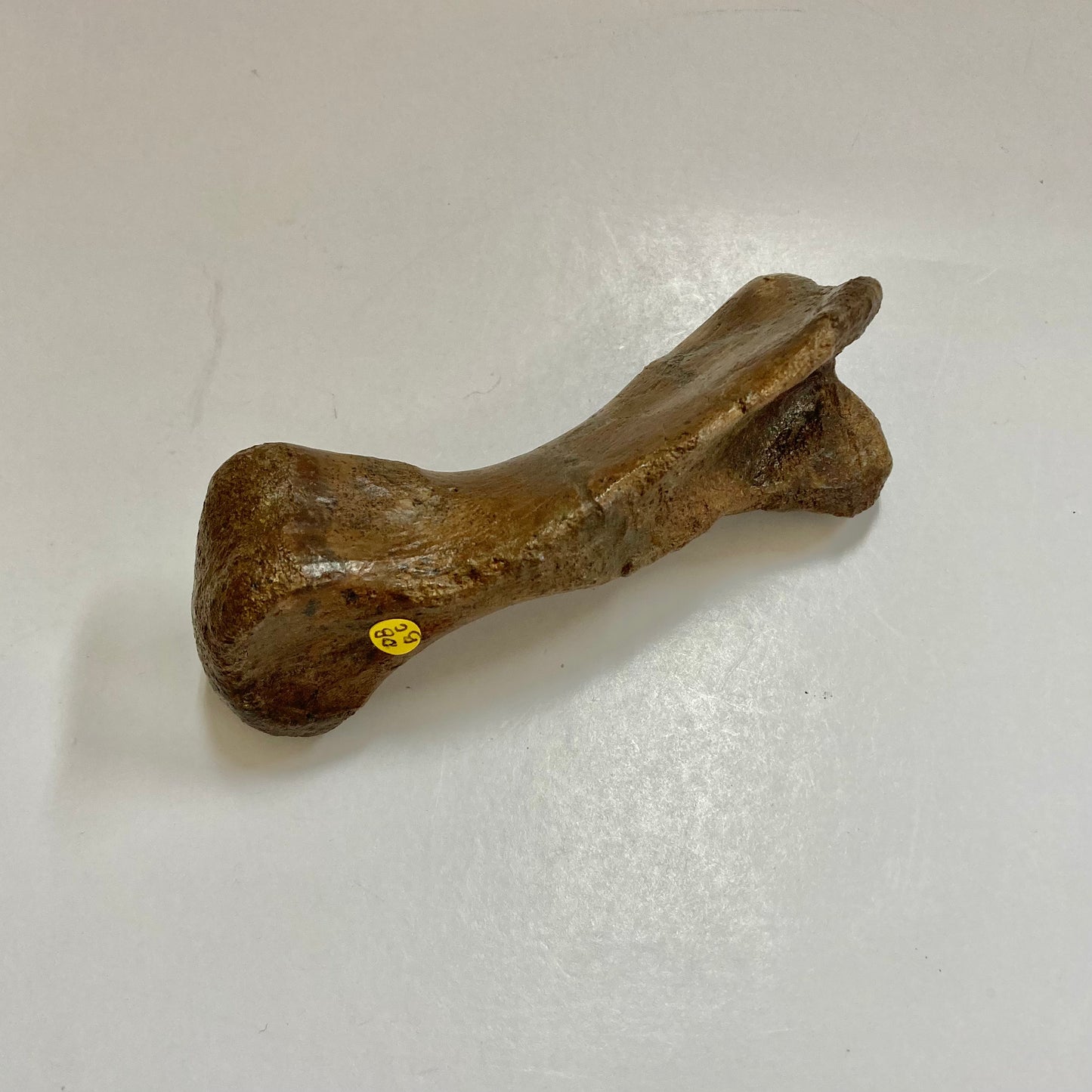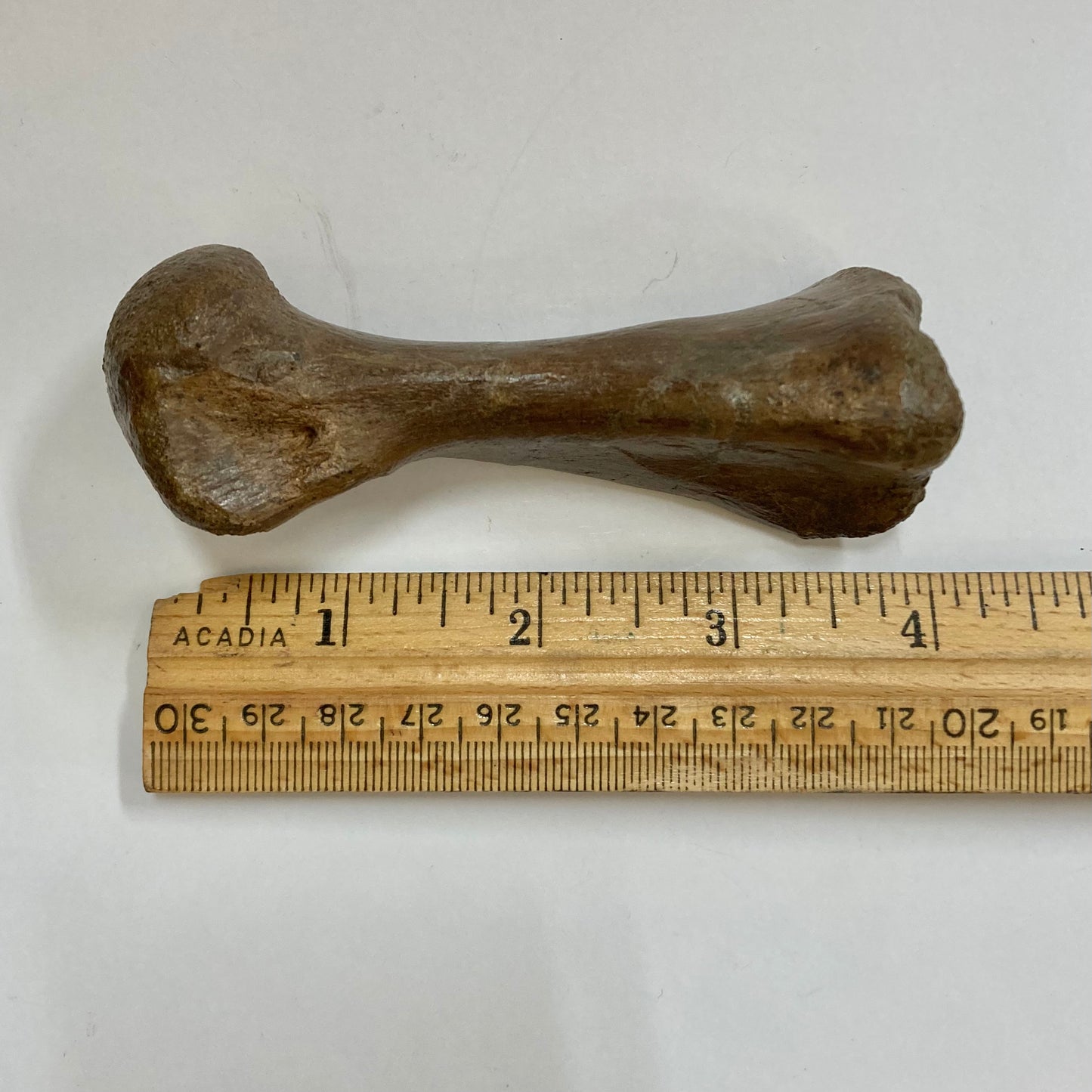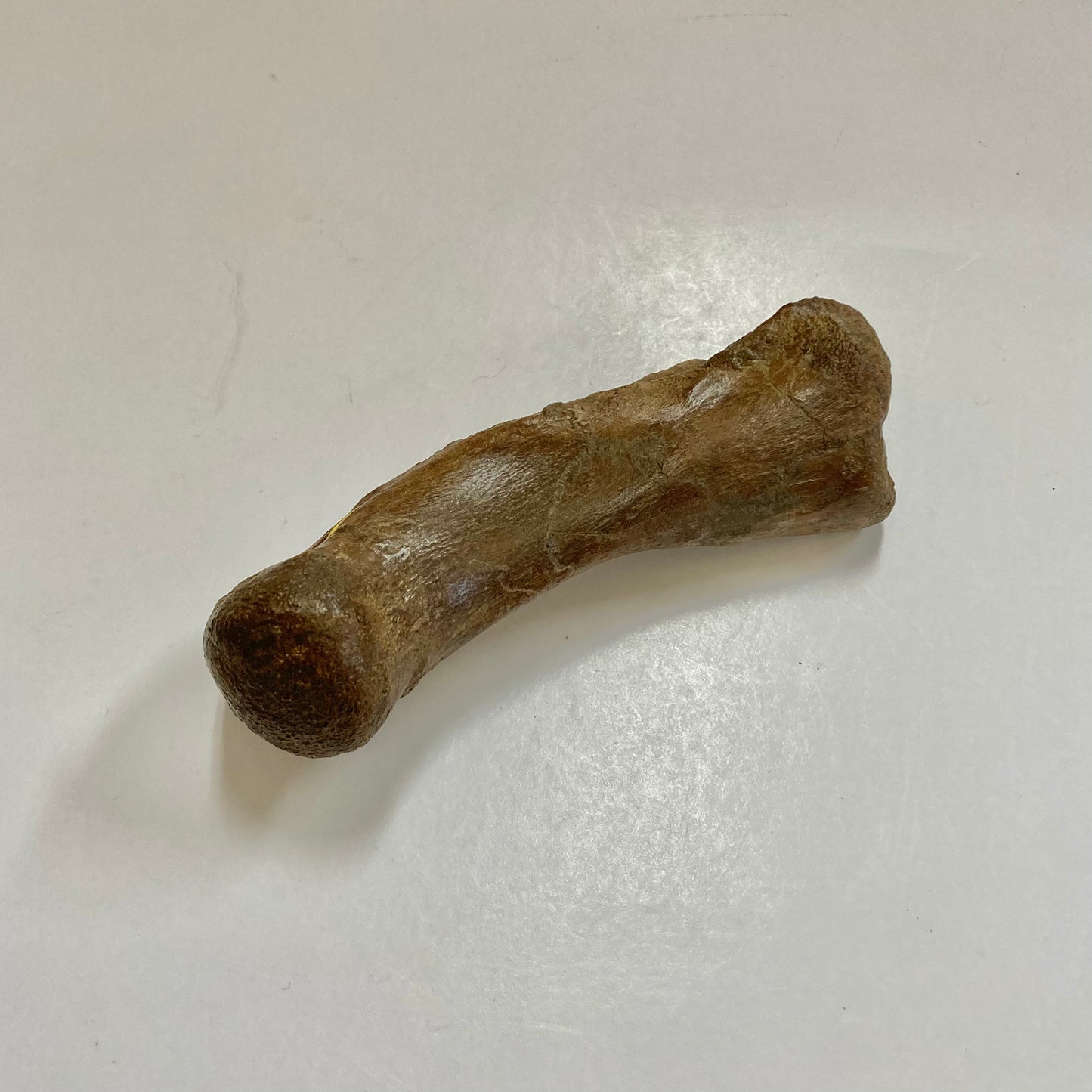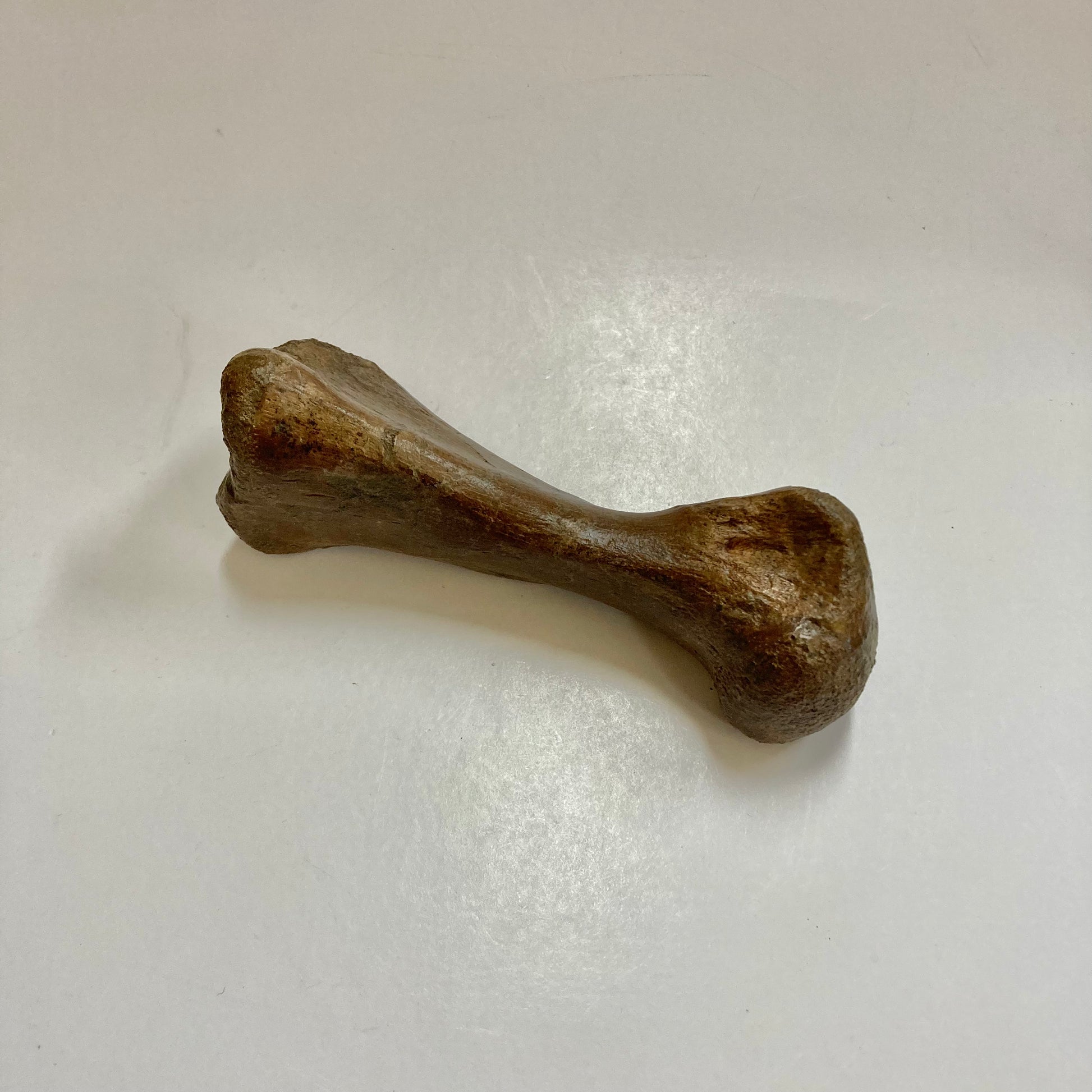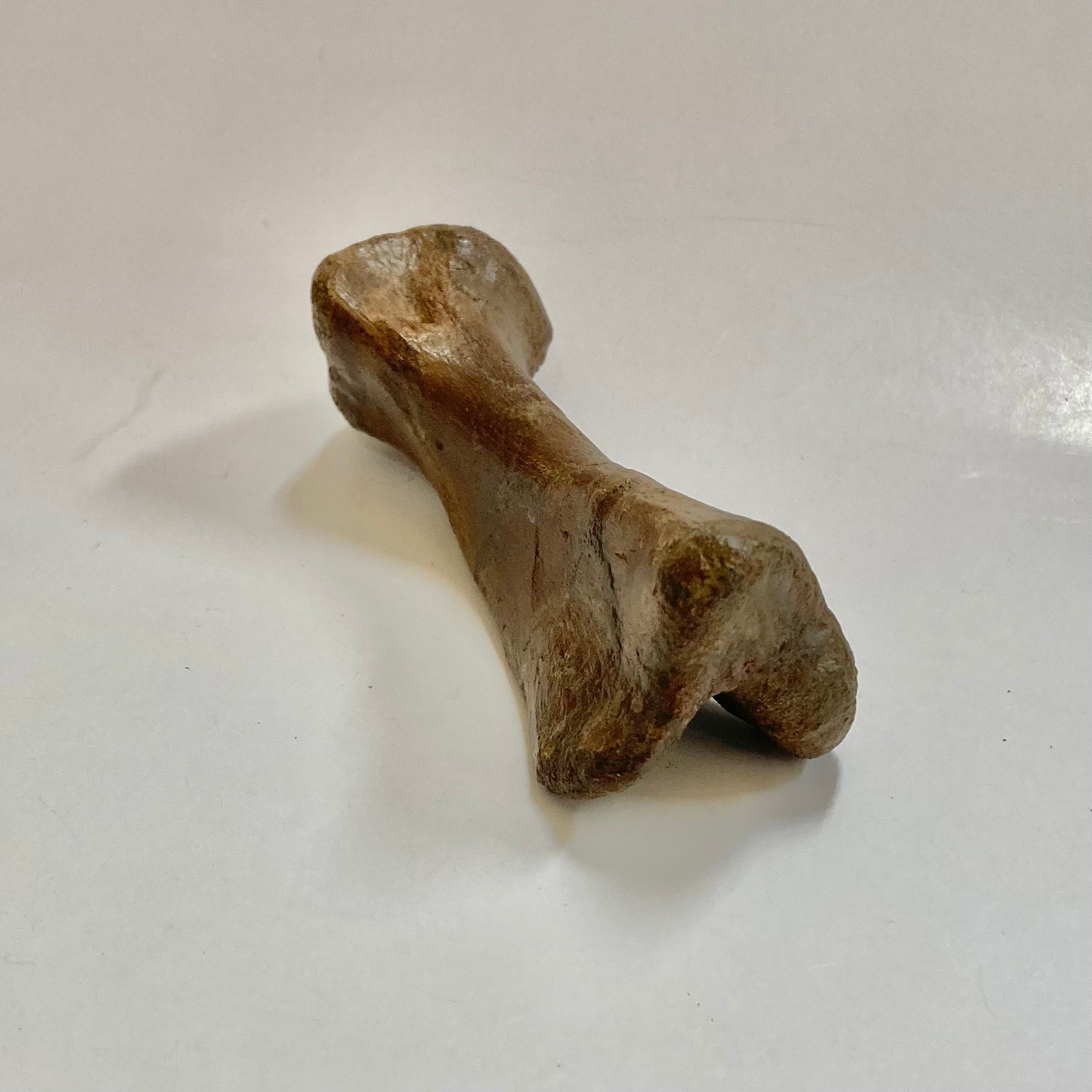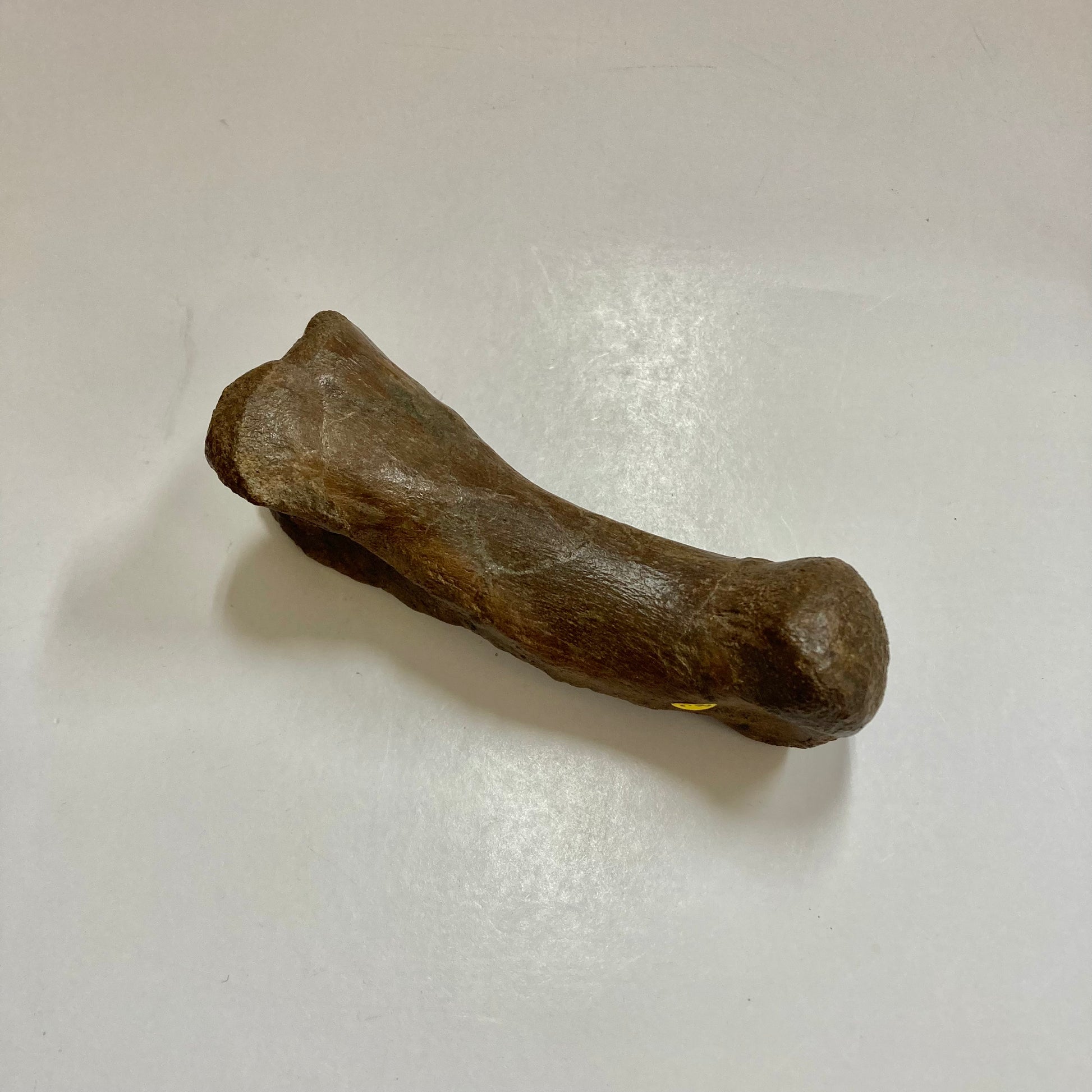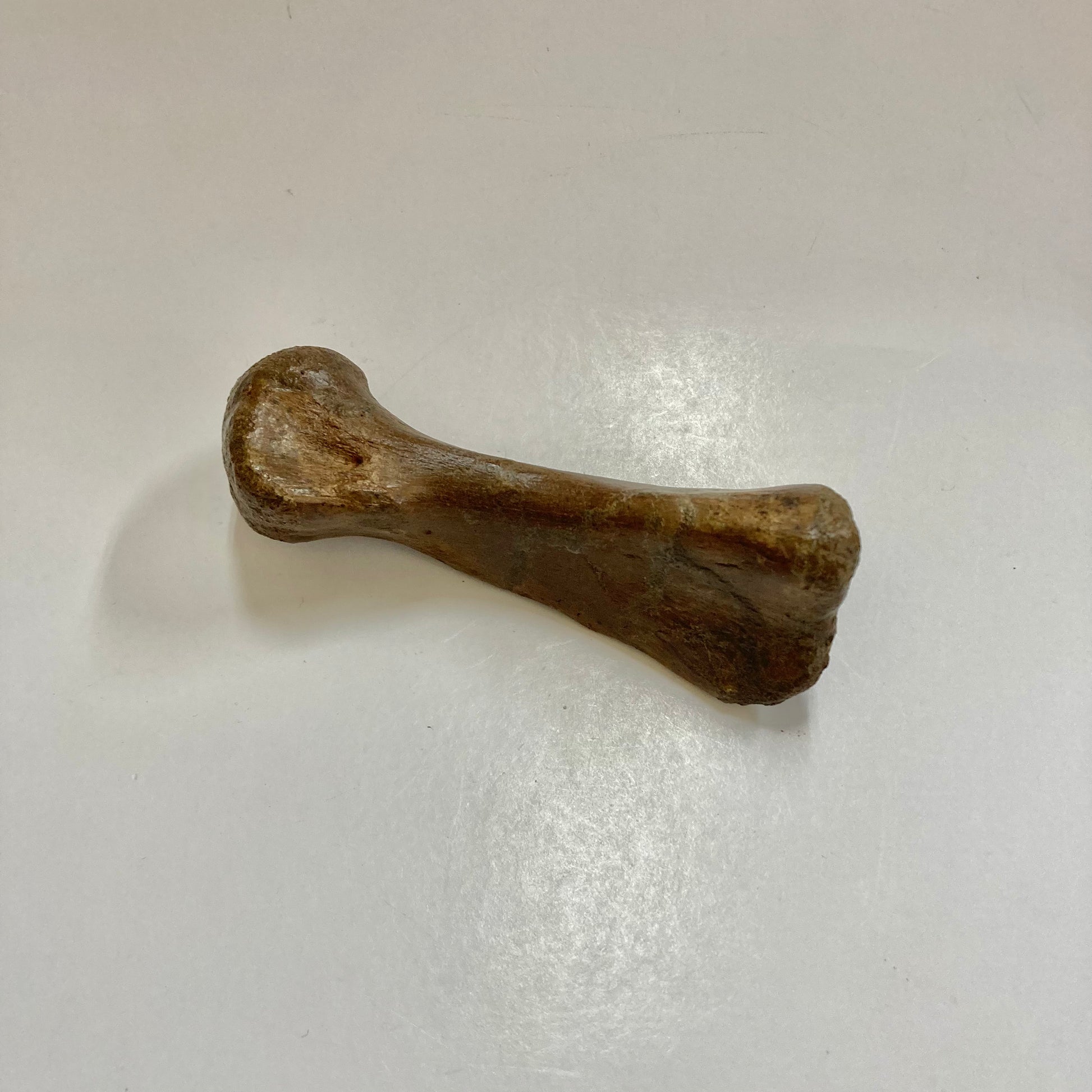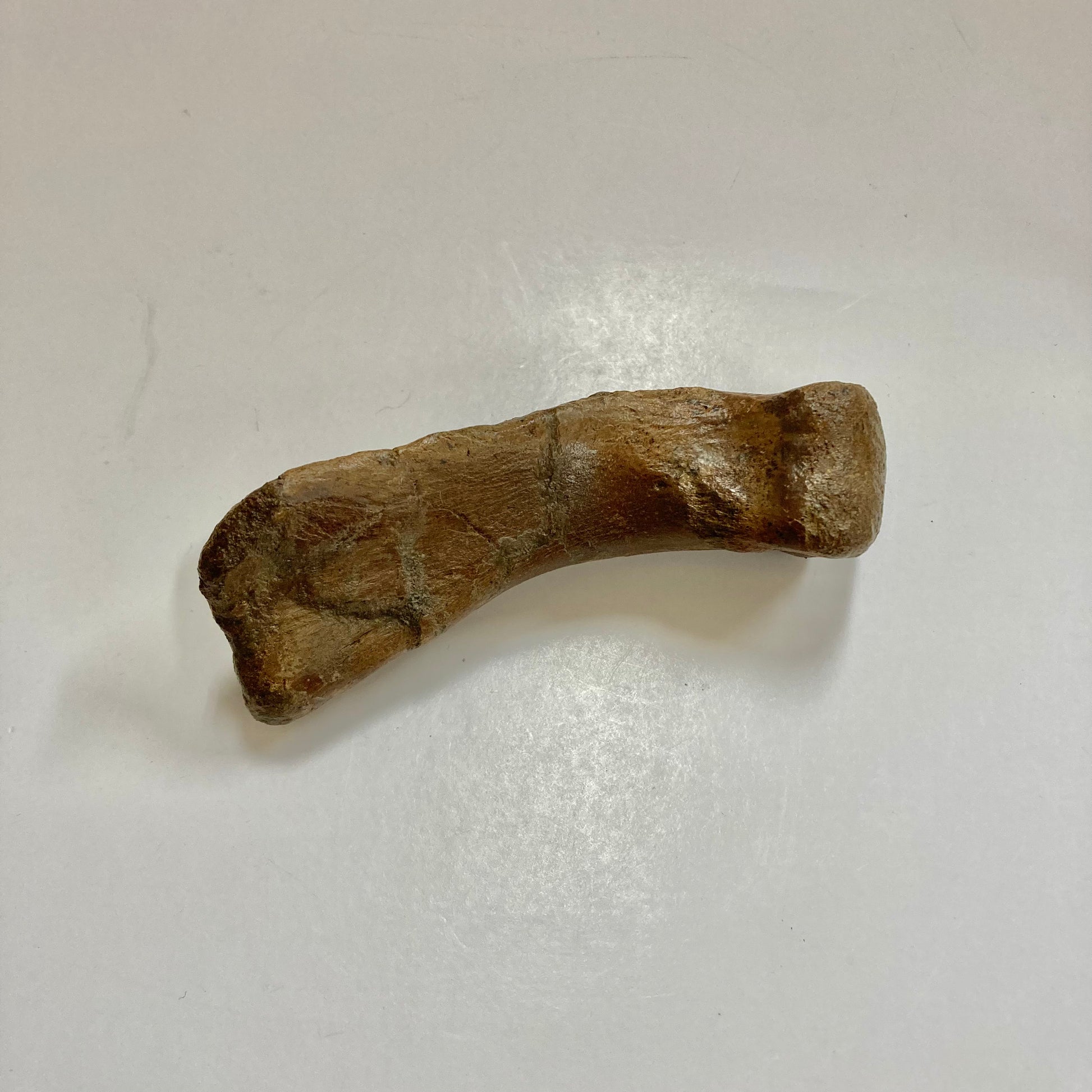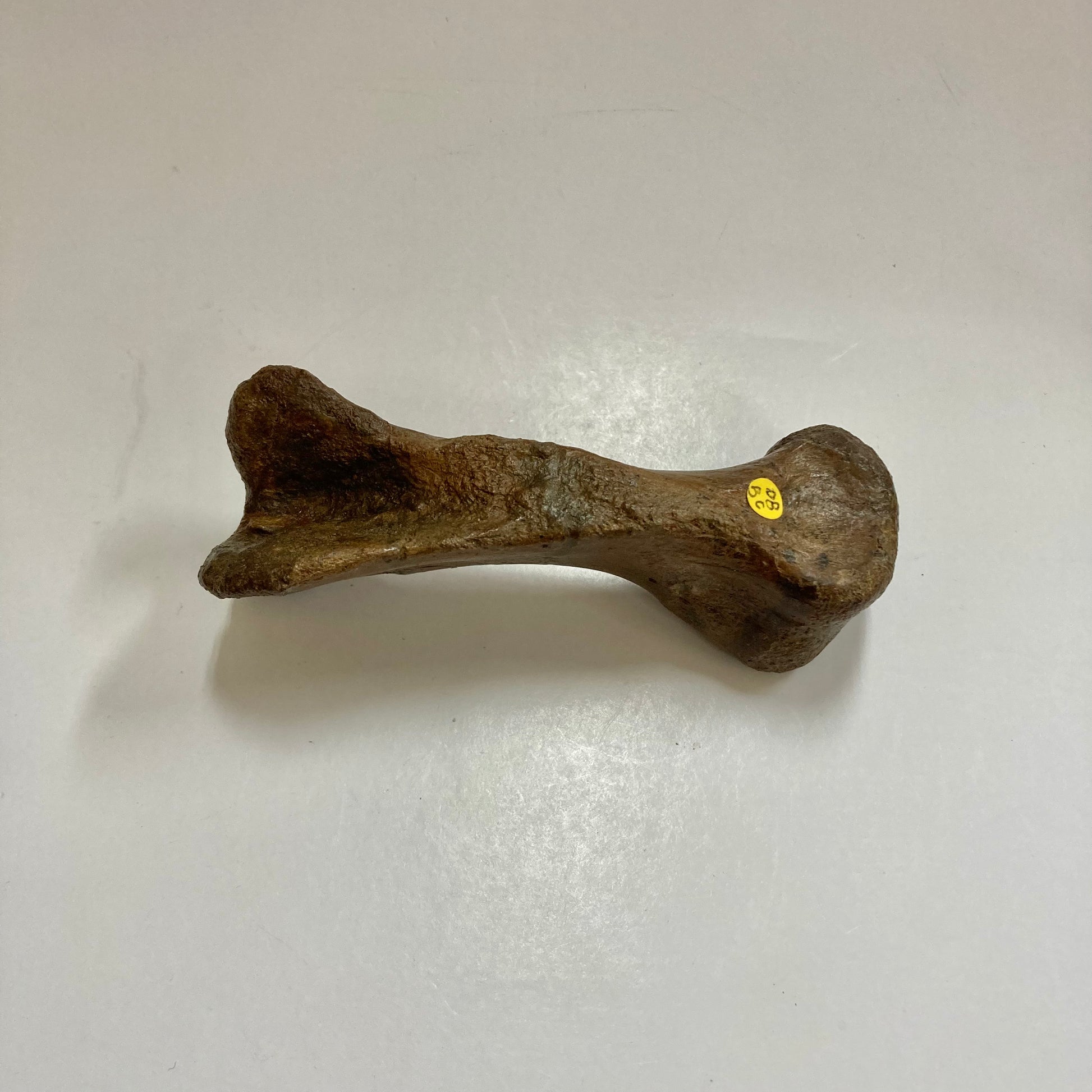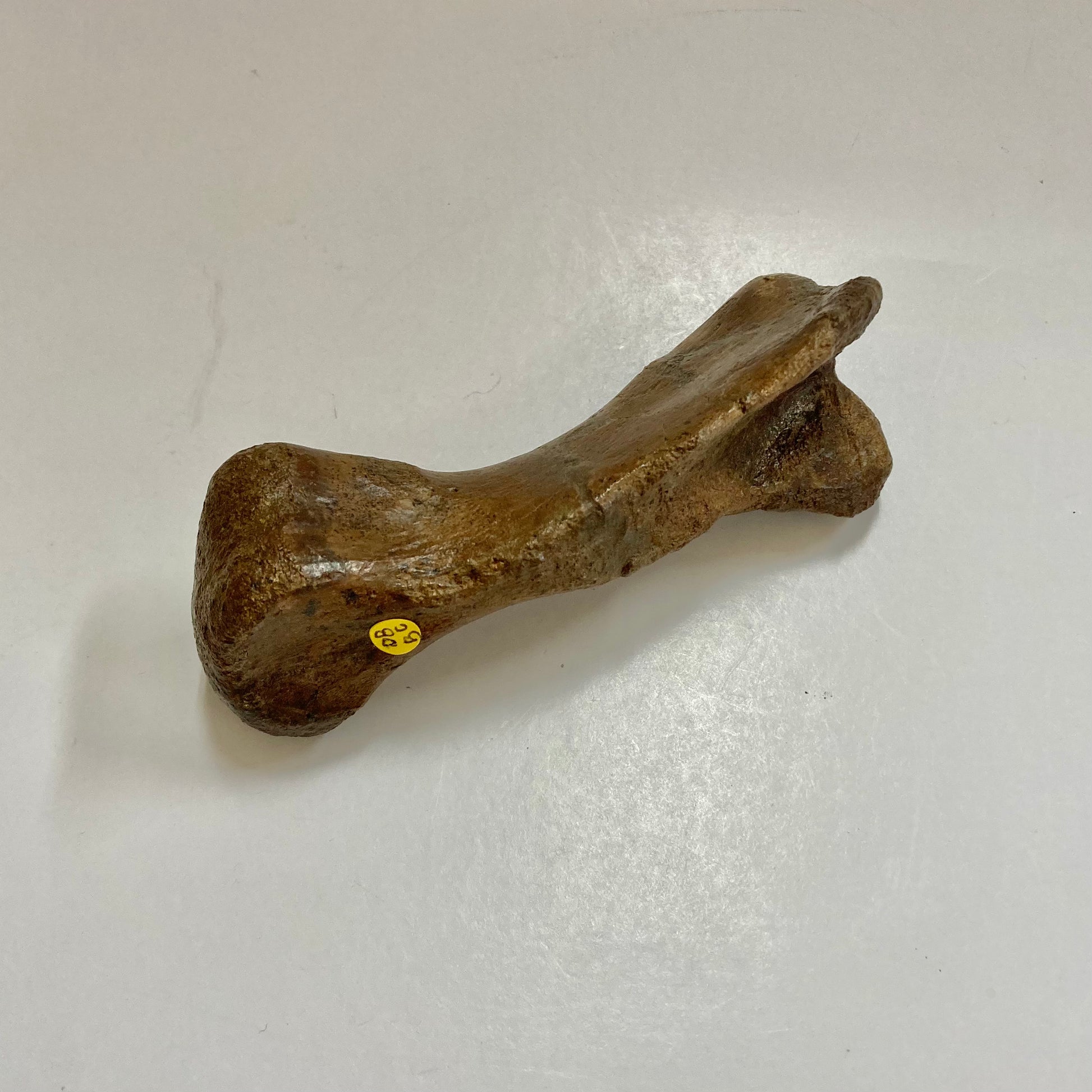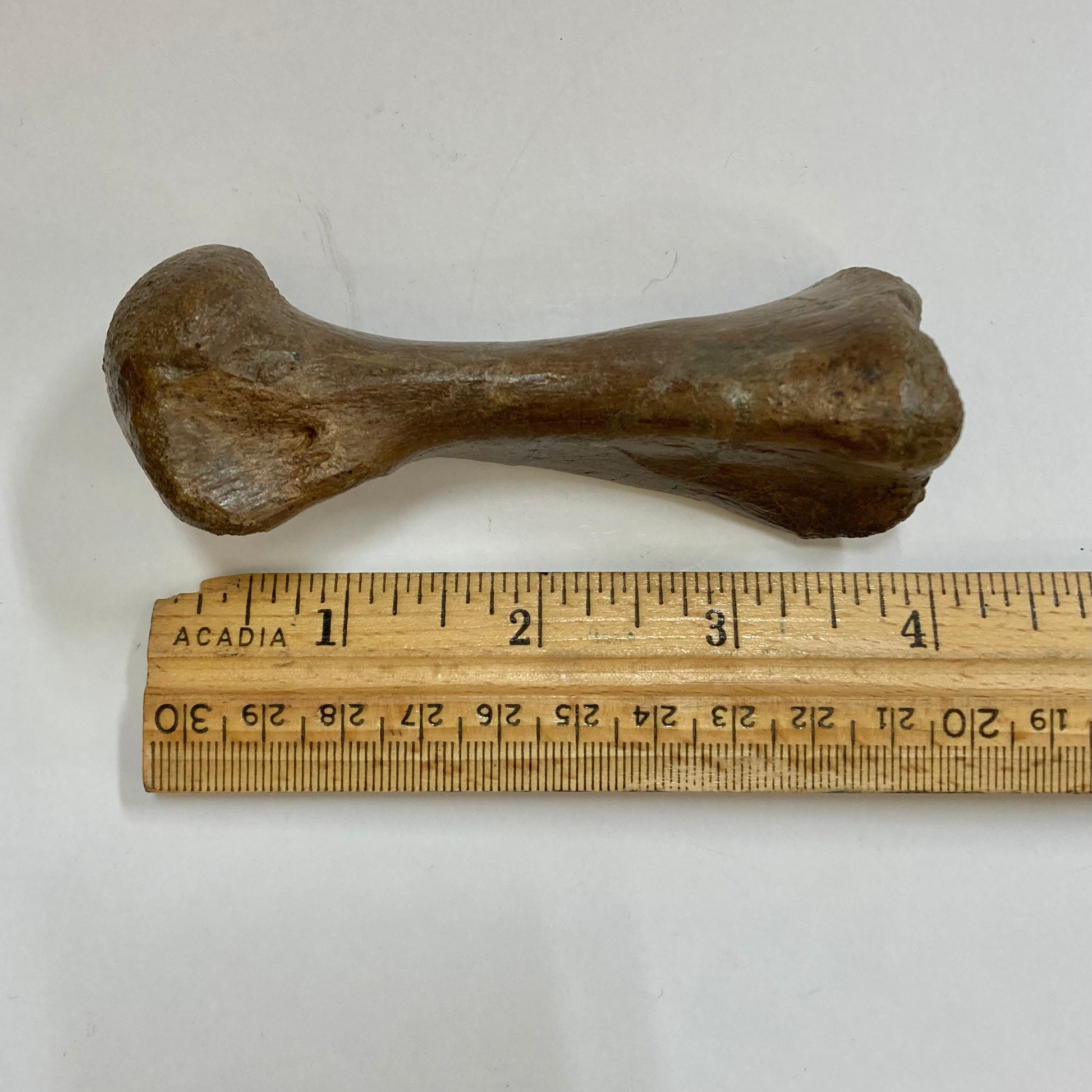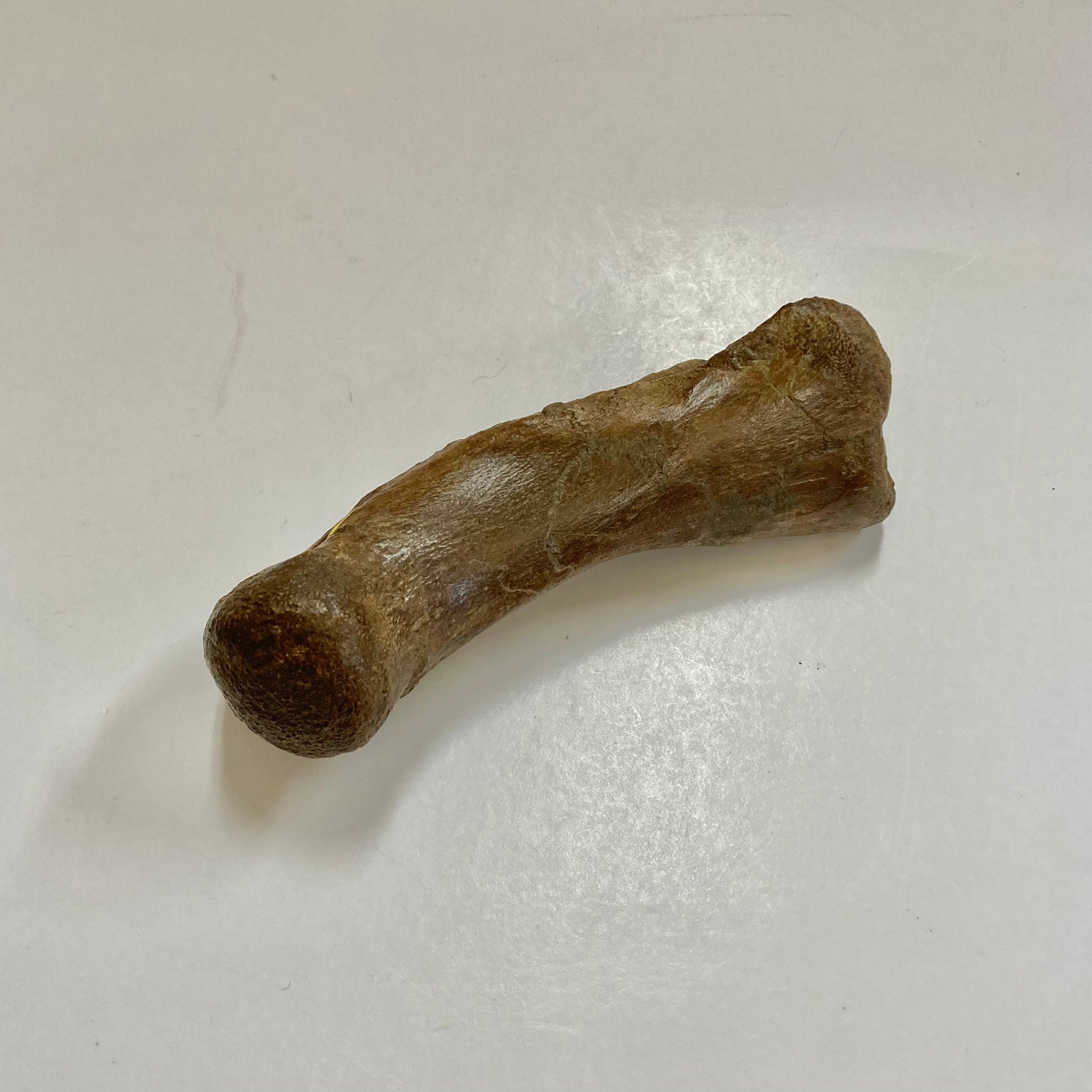Past & Present Science and Nature Store
Thescelosaurus Metatarsal Toe Bone
Thescelosaurus Metatarsal Toe Bone
Couldn't load pickup availability
Thescelosaurus was one of the more common herbivores to roam North America with Edmontosaurus, Triceratops and Tyrannosaurus during the Late Cretaceous Period, 68 to 65 million years ago.
This metatarsal (toe bone) of Thescelosaurus comes from the world-famous Hell Creek Formation and is exquisitely preserved and prep'd. There are a few cracks that have been repaired.
The 8 to 10 foot-long body of this bipedal dinosaur was counterbalanced by an extremely long tail. Oddly the upper leg bone (femur) was longer than the lower leg bone (tibia) rendering it a slow runner.
It is speculated that Thescelosaurus preferred residing by channels of water, using its pointed and leaf-shaped teeth to cut through plants and possibly small animals like lizards. The steady growth of foliage along a riverbed would allow for a constant source of food and hiding spots.
A theory for the unusual limb proportion is that it allowed Thescelosaurus to swim easily in shallow waters to avoid potential threats. Rivers may have provided refuge from potential predators like Tyrannosaurus rex.
Type: Thescelosaurus Metatarsal (Toe Bone)
Age: Late Cretaceous (65 million years old)
Formation: Hell Creek Formation
Locality: Powder River County, Montana
Size: 3.88 x 1.5 x 1.44 inches
Weight: 2.55 oz.
Share
